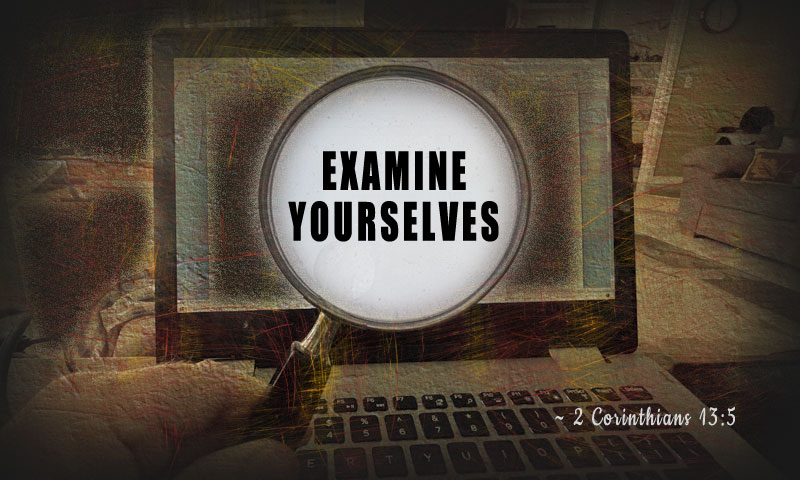
Examine yourselves, whether ye be in the faith; prove your own selves. Know ye not your own selves, how that Jesus Christ is in you, except ye be reprobates?
~ 2 Corinthians 13:5
Paul urges each of his readers to examine whether their own relationship with God is real. It is not good enough if other people consider us to be genuine Christians. Even our own heart (mind) can convince us of something that is not true*. So we must be extremely careful in this matter.
A person’s life should show evidence of whether that person truly has a relationship with God*. That evidence appears both in the person’s attitudes and his actions*. A true Christian should have faith* – that is, he should trust God. Also, he should show love, both for God and for other people*. He should do what God wants him to do*. He should listen to God’s word, the Bible, and obey it. He should choose to do what is right, and not to do wrong and evil acts.
However, a person may be a genuine Christian even when his relationship with God is weak. Such a person may show very little evidence of his relationship with God. That person should try hard to make that relationship stronger; then the evidence will be stronger, too. He can pray; he can study the Bible; he can get help from other Christians. He must try to obey God in every circumstance; he should try to serve God whenever there is an opportunity.
If any person truly is a Christian, then Jesus Christ is living in that person. Paul did not consider that to be a theory or a word-picture, but an actual reality. God, whose home is higher than the heavens, has entered that person’s life. There God remains; therefore, the person has become God’s home also*.
That relationship is possible only because of Christ’s death. He died so that God can forgive our evil deeds. That relationship begins when we turn from our evil deeds to invite Christ into our lives*.
That relationship begins in this life, and it will never end*.
From: usefulbible.com – by Keith Simons
Read more

